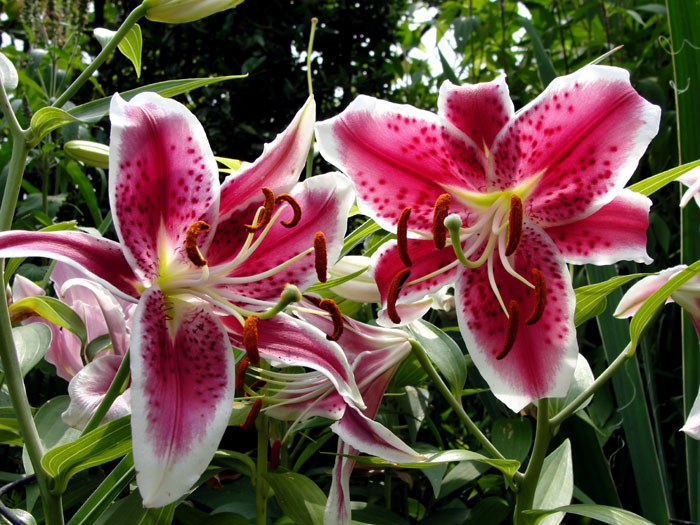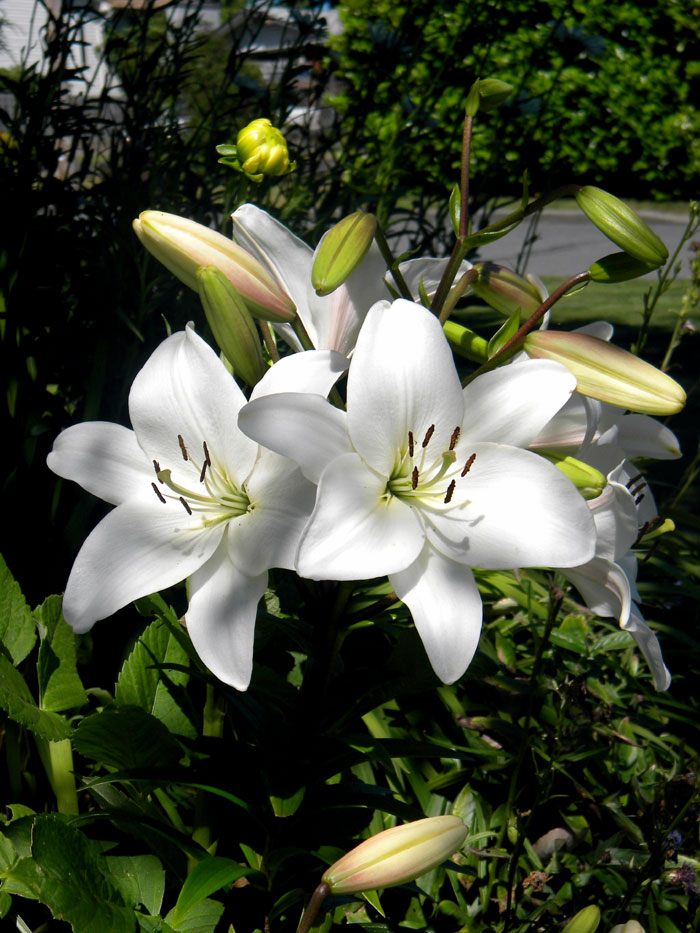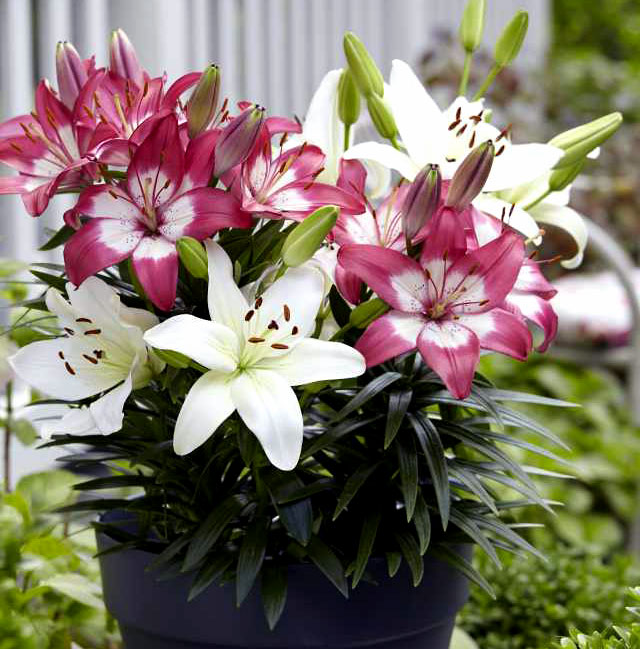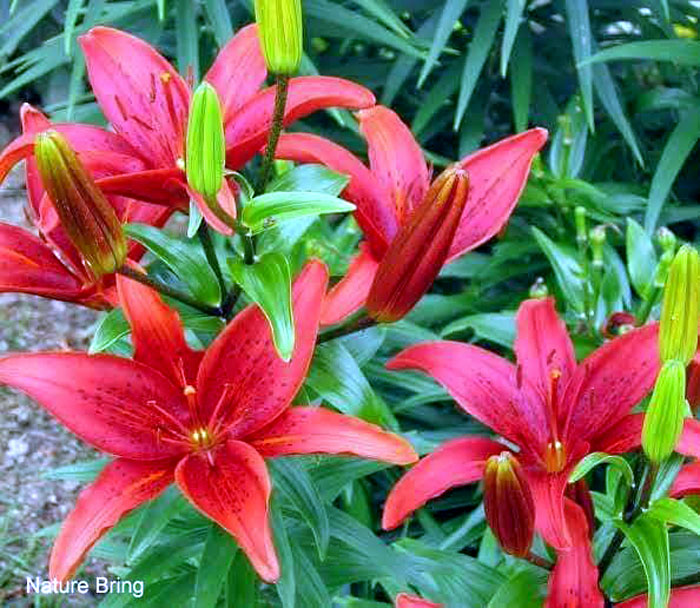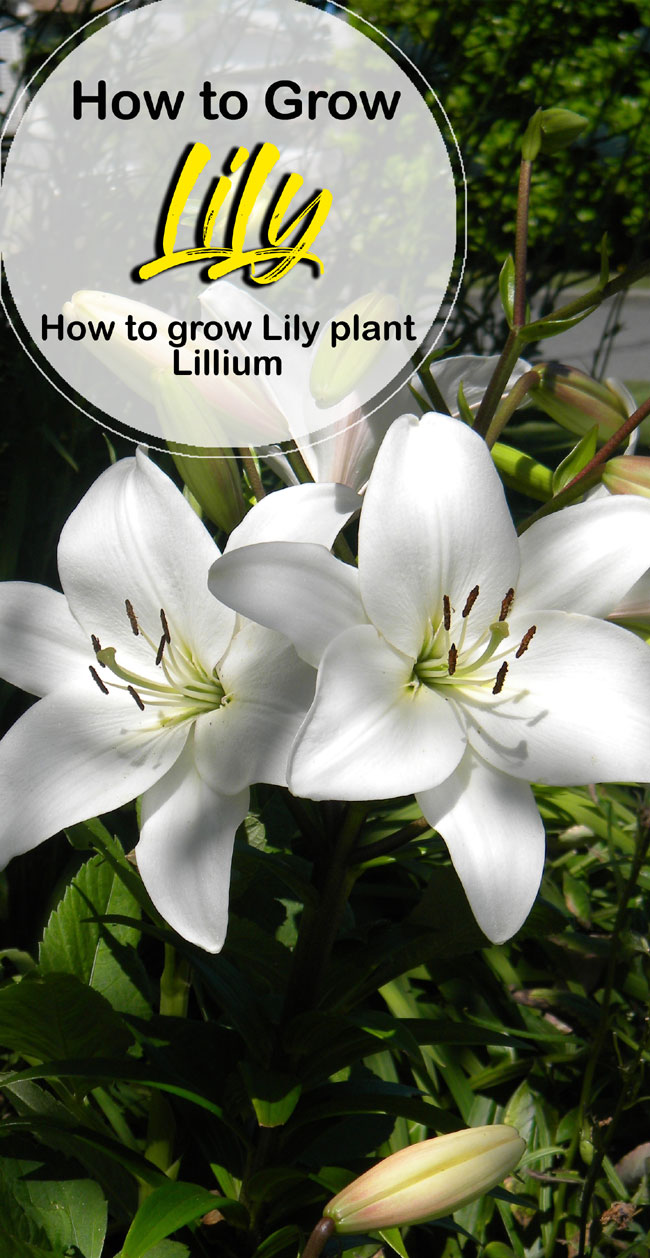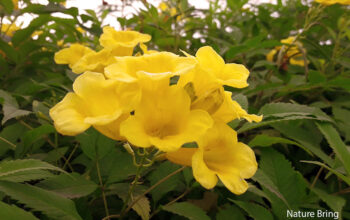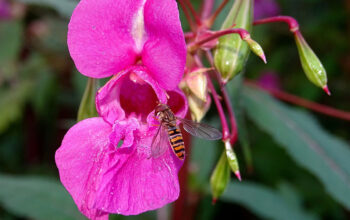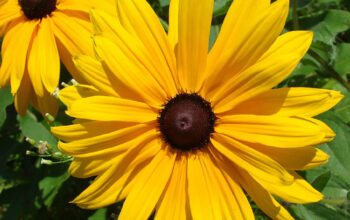Lily plant (Lilium)
Learn Growing Lily in containers, How to grow lilies, Lillium care, Problem with Lilies, and more about the lily plant. Lilium is the favorite plant of most gardeners, which grows with bulbs. They add elegance to your garden and its colorful flowers bloom for a long time. This is a special attraction for your garden in Midsummer because at this time most plants do not get flowers. The flower of the plant (Lillium) blooms in trumpet-shaped many colors, mainly including pink, red, orange, yellow, and white color. Lilies have many types of plants, but the care and planting are almost the same.
Its biggest feature is that it is the perennial flower that develops from the bulb if you plant it in the right place, then the blossoms year after year. They will need minimal care. Lily flower has six plain or spotted petals, its trumpet-shaped flowers are narrow, long, which stand tall, upright with lance-shaped leaves.
Classification
Scientific name Lilium
Common name Lilies, true lilies
Plant type Flower
Sun requires Full Sun, Part Sun
Blooming time Spring, Summer, Fall
Flower colors Pink, Red, White, yellow, Orange
Soil Loamy well-drained soil
Soil pH 5.5-6.5
Zone 3-8
How to grow lily flowers
Soil and location
Lilies plant prefer Loamy well-drained and rich soil. For this, a bit acidic 6.5 pH is at the right level of the soil. Lily plants grow very well in full sunlight, however, it grows well in partial shade (for the trumpet lily, the full sun and the cap of the Turks prefer partial shadows.) Lots of shade lilies plants turn towards the sun.
Planting time
-
Lilium plants are planted from bulbs, usually in the fall, but you can also plant them in the spring. You can also grow a healthy plant from a nursery. Fall planting bulbs have the opportunity to take root well into the growing season.
- These bulbs require moisture in the ground, so at the time of planting, make a diameter of about 3 times bigger than its diameter. However, it is not necessary for container planted lilies.
- Separates Between lily plant bulbs 10 inches apart, this is necessary for adequate air circulation and it can also be avoided from fungal diseases. Read more.
Lily plant care
Watering
It is beneficial for lily plants to give water during the spring or growing season. But after flowering once Or before the new growth in spring, water becomes susceptible to rot. Give more water and avoid wet soil. If you have a lot of soil then it should be an amendment.
Stacking
Lilies flower normally blossom in heavy and long stems, so they require stacking, such as Oriental hybrids.
Mulching
If we dress light mulch, it is beneficial for the plant. If you use compost, leaf mold, or well-rotted organic manure, it also provides nutrients as well as organic material. Read more.
Dead Heading
Lilium does not bloom more than once in the season, but if you remove the damaged flowers and leaves, the plant does not make its energy grow in seed and produces well.
Problem with Lilies plant
Lillium suffers from Botrytis in the cool, damp weather. Good air communication transmission is necessary to avoid this. Mosaic Virus Disease may be in Tiger lily (Lilium tigrinum), although it does not harm them. But these viruses are carried by insects to other varieties that are harmful. Lily Mosaic virus-infected plants should destroy immediately. Lillies leaf beetles may also be affected. If you have a big problem with this beetle, then try to increase the “black beauty” lily, which prevents adult escape. Read more.
Growing Lily in containers
- Almost all types of lilies grow well in containers, however, if you need support for a long species Lilies. lily plant cultivation has many species of low-growth Asian hybrids and Pixi series, which are suitable for containers. Read more.
- Typically its plants and bulbs are planted in spring in early autumn. Usually, 10-12 inches of the pot is sufficient for lily plants, after the development of the plant you can divide or re-pot it.
- Before planting in the container, check drainage thoroughly. Keep the net on the surface or the small stone (gravel) for proper drainage in the bottom of the container. Fill the container with a commercial potting mix of about half to three-fourths. Arrange lily bulbs on this soil, and fill the pot with soil, cover the bulbs completely. Typically the planting should be done by two to three times the depth of the bulb shape.
- Dwarf varieties such as Agapanthus praecox ‘Dwarf White’ and large Asiatic hybrids such as ‘Stargazer,’ can be planted to containers. Commercially, Easter lilies can plant two to three bulbs in a 10-inch pot, and forcing the early spring bloom. It blossoms naturally out in the early summer.
- After the bulb planting, watering the container, it is necessary to maintain soil moisture. Wet the soil regularly, dry soil affects the production of flowers.
- Feed the Lily Plant diluted balanced fertilizer once a week, avoid high nitrogen fertilizers. You can choose the emulsion of fish or any excellent biological options.
- After planting place your container where you get bright light for six to eight hours per day. Keep the plants rotate from time to time, so that all the sides get similar light. The appropriate temperature for Lily is between 12 and 25 degrees Celsius.
After flowering
After the end of the lilies flower, when the leaves die or move the bulb in the garden, then you can do re-pot in the autumn. In the second season, you can grow it in large containers.
Common Lily plants
During the summer there are many different types of lilies and all blooms. Each type of bulb blooms in hot summers for a long time.
1.Oriental Lily
Many species of lilies provide beauty to your garden in summer, but the most popular varieties are Oriental Lily. The flowers of most dramatic grow into big stars, which are often visible in white, yellow, red, and pink colors. These are ideal for cutting flowers and attract our spicy scent.
2.Trumpet Lily
Its flowers are trumpet, hence it is called a trumpet lily, its flowers are very aromatic.
3.Tiger Lily
It’s a very popular and hardy Lily in which there are spots similar to Tiger. Its flowers come in clusters and it produces more than a dozen flowers on each stem. The color of its flowers is dark red with a golden yellow color.
4. Martagon Lily
Martagon Lilies has whorled leaves and Turk’s cap flowers, hence it is also called the Turk’s cap Lily, with more than 20 flowers blooming on one of its stems. It comes in many colors.
5. Rubrum Lily
It is similar to Tiger Lily, but its color ranges from white to dark pink color. Lillies flowers have a sweet smell. Read more.
Read also:
How to grow Ridge gourd. Growing and planting freesia Flowers. How to grow Garlic Vine in containers. Container Gardening: The best filler plants. Growing and caring about Lupins. Pointed gourd cultivation. Black currents growing and caring. Onion growing and caring easy tips. 11 best Winter flowers for your garden. 8 Best Frugal gardening tips.
Happy gardening.
For Pin:

